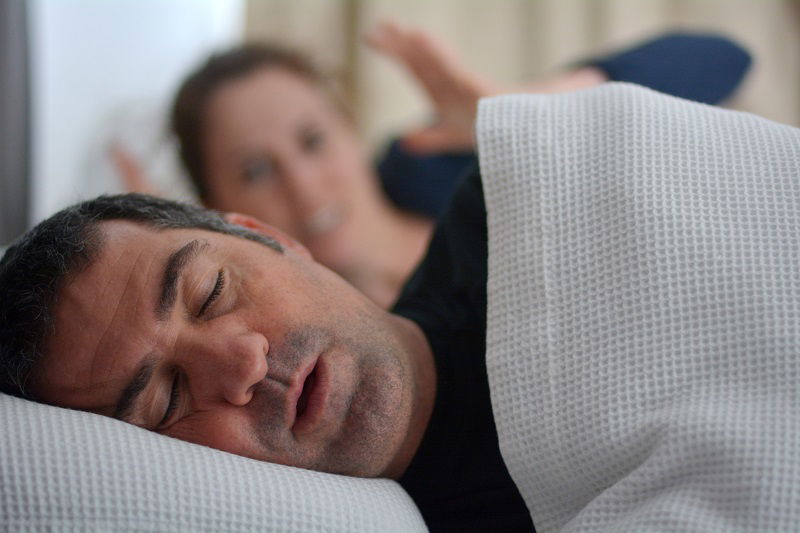If you have been diagnosed with sleep apnea, your doctor may have told you that sleep apnea puts you at increased risk for a number of other health conditions, including heart problems, high blood pressure, type 2 diabetes, metabolic syndrome, liver problems, and more. However, did you know that sleep apnea also increases your risk for hearing loss?
What is sleep apnea?
There is more than one type of sleep apnea, but the most common is obstructive sleep apnea (OSA). Obstructive sleep apnea occurs when the airway is obstructed during sleep, typically when the muscles in the throat relax or when the tongue falls back in the mouth. This results in pauses in breathing and causes the person to wake up, often feeling out of breath.
Obstructive sleep apnea is often associated with snoring. Other common symptoms of OSA include excessive daytime drowsiness, irritability, difficulty staying asleep, awakening with a dry mouth, gasping for air during sleep, and difficulty paying attention while awake. Factors that increase a person?s risk for OSA include excess weight, being older, being male, greater neck circumference, smoking, and use of alcohol or sedatives.
What is the link between sleep apnea and hearing loss?
According to a 2022 study published in the journal Clinical Otolaryngology, people with sleep apnea are 21 percent more likely to have hearing loss. The study observed nearly 7,000 older adults in Europe. Based on the results, the study authors urge people with obstructive sleep apnea to undergo screening for hearing loss.
While this study is the most recent one to explore the connection between sleep apnea and hearing loss, it is not the only one. Another study assessed almost 14,000 using in-home sleep apnea studies and on-site audiometric testing. The researchers found that hearing impairment was more common among those who snored, had a higher body mass index (BMI), and had severe sleep apnea.
An additional, smaller study analyzed the oxygen levels of people with severe obstructive sleep apnea. Those with the lowest oxygen levels were much more likely to have hearing impairment.
These studies show that a link exists between hearing loss and sleep apnea. However, researchers are not exactly certain what causes the connection. One theory is that because sleep apnea reduces blood flow to the ears, the ears do not receive enough blood supply to work properly.
Another hypothesis is that years of snoring (strongly associated with sleep apnea) can cause damage to the ears? sensitive hair cells. This would result in sensorineural hearing loss, with is the most common type of permanent hearing loss.
How can you reduce the risk of hearing loss if you have sleep apnea?
If you have sleep apnea, the best thing you can do for your hearing health and your overall health is to treat your sleep apnea. For most people with OSA, the recommended treatment option is a continuous positive airway pressure (CPAP) machine that is worn while you sleep. Oral breathing devices may also be available to treat sleep apnea. Other sleep apnea treatments include surgery to correct a blockage and medicine to help you stay awake during the day. In addition, your doctor may suggest lifestyle changes like weight loss or smoking cessation.
If you have sleep apnea or you snore, it is important that you receive a hearing screening. Treatment is also available for hearing loss. To learn more about the connection between sleep apnea and hearing loss, and to schedule your appointment with our hearing specialist, we invite you to contact our office today.




